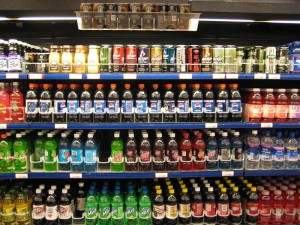Study: Hawaiʻi Teens Drink Most Soda in Nation
Hawaiʻi teenagers drink more soda and eat fewer vegetables than the national average, according to data analyzed in a Rehabs.com study exploring teenage obesity and self-image throughout the U.S.
The study sought to understand and address the four-fold growth in teen obesity in the U.S. since 1980 through analysis of data collected by the Center for Disease Control’s (CDC) Youth Online portal and the National Health Examination Survey.
Nationwide, the study found that Hawaiʻi ranks 33rd for teen obesity. However, the Aloha State ranked third in the nation for teens who consider themselves unhealthy, despite having healthy weights.
Soda has “for a long time played a significant role in teen obesity,” according to Rehab.com. On average, a typical 20-ounce soda contains up to 18 teaspoons of sugar and 240 calories. However, the exact causes of teenage obesity can be complex.
According to CDC survey data from 2015, sedentary activities like watching television, playing video games and using electronic devices play a large factor in teenage obesity. Genetics also influence weight and obesity, says a study published by PubMed.gov. But diet still plays the most influential role, according to CDC data.
In 2015, the Center surveyed 100 overweight teens to uncover their top five addictive foods. The results ranked chocolate at the top of the list, followed by ice cream, soda, french fries and white bread.
Since 1980, research shows that teenage obesity has quadrupled. Kids who are overweight or obese are at risk of developing health problems like psychological stress, depression, high blood pressure and type 2 diabetes, according to the website. Feeling insecure about their body shape or size can also result in extreme eating behaviors like binge-eating or anorexia with serious health consequences.
To help families who may be facing health problems relating to weight, The American Academy of Pediatrics recommends that parents eat regular, well-balanced meals with their children, and avoid “weight talk,” or talking too much about their own weight in front of their kids.
The Rehab.com study concluded that parents and peers must help normal-weight teens feel better about their bodies to prevent drastic diets and weight loss to have a “perfect” body. The website also concluded that overweight teens can improve upon their eating behaviors by recognizing unhealthy habits.
Sponsored Content
Comments









_1770333123096.webp)


